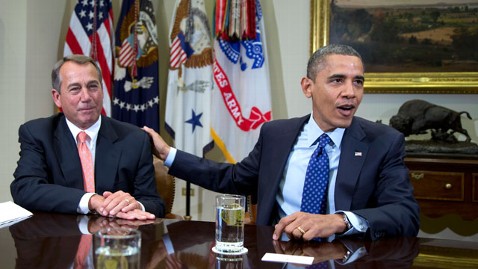Fear the Cliff: Americans See Threat to Their Own Finances, Poll Finds

Budget stalemates can be esoteric and abstract, but for many Americans, this one isn't.
A new Gallup poll finds that 64 percent believe there would be a negative effect on their "personal financial situation" if "the fiscal cliff tax increases and spending cuts go into effect," while 33 percent said they don't.
Among key subgroups, just about everyone is worried.
Concerns were higher (68 percent) among lower-income households, making less than $36,000 per year, than among Gallup's two higher-income brackets (62 percent in each). Those with children under 18 (67 percent) were more concerned than those without (63 percent).
The least worried groups were Democrats (58 percent, to Republicans' 75 percent) and 18-to-29-year-olds (56 percent). The most worried groups were 50-to-64-year-olds (71 percent) and Republicans (75 percent).
Fiscal-cliff polling doesn't matter, in a sense. Public hue and cry won't necessarily lead to compromise between President Obama and congressional Republicans, with each side sticking to their political guns - Obama having won re-election promising higher taxes on the wealthy, and Republicans having won re-election by promising their own constituents to fight tax hikes and cut entitlement spending.
But Gallup's numbers indicate a broad worry about the present stalemate, and perhaps a reason why things are different this time.
In the last fiscal crisis, as the Treasury's debt-limit/default deadline approached in 2011, respondents still rated the economy as a greater concern than deficits. Disconcerting as that was, if Obama and Congress fail to reach a deal by the end of 2012, Americans will start paying more taxes next year - meaning "personal financial situation[s]" will take a direct hit.